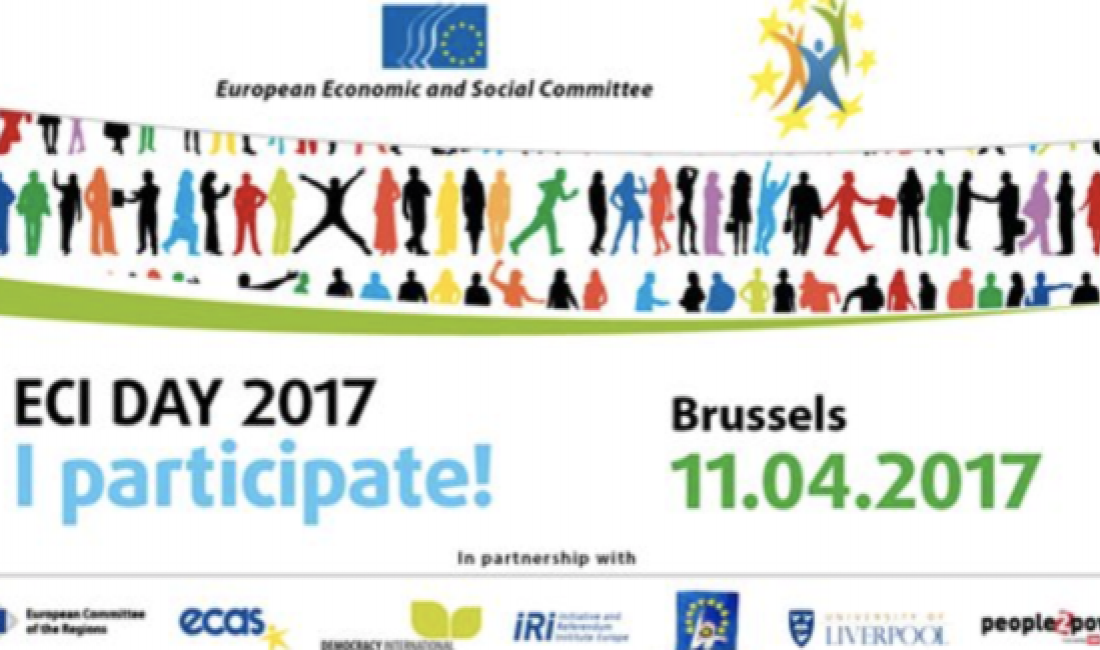Since 2012 European citizens’ have the right to set the agenda of the European Union. This first tool of participatory and direct democracy at the transnational level is a difficult but fascinating learning process – and is assessed on an annual basis. On April 11 it is time again for the P2P-co-hosted ECI Day.
The concept of European citizenship has been evolving for 60 years, ever since the Treaty of Rome made history by introducing the right to freedom of movement for workers and services. Over the years, the idea of European citizenship and the rights associated with it have evolved considerably – more freedoms were added, as well as the right to vote directly in European Parliament elections, online consultations and other tools of participatory democracy, such as the European Citizens’ Initiative.
With this in mind, 2017’s edition of the “ECI DAY: I participate!” hopes to bring to light the success stories that attest to the considerable evolution of the concept of European citizenship, as introduced by the Treaties, and the kind of policy-making that engages citizens, but also to identify where the democratic deficits lie. Our aim is to underline the value of active citizenship and personal involvement, as well as the importance of citizens’ informed and conscious use of the democratic tools that are available.
ECI success stories
The ECI has great potential, but also clear limitations. It complements the political system with its direct, indirect and representative democratic rights. It should not be forgotten that the most important element of any healthy political system is supporting active citizens and offering them a selection of tools with which to shape their lives, both locally and on a national level; in other words, to construct a political system along with people who believe that they can bring about change even via small actions in their neighbourhood.
This is why we will focus on two themes during the 2017 ECI DAY:
ECI success stories to show how some ECI ideas have actually found their way into European legislation despite not benefitting from any direct legislative follow-up. There were also a number of technical updates and simplifications to the technical specifications that deserve attention.
Citizens’ Participation - ECI and beyond which will investigate further various forms of citizen participation in view of their efficiency, purpose and requirements. What makes a transnational campaign successful? We will also try to design an event that could address citizens’ participation needs.
European Day on Modern Direct Democracy
The European Citizens’ Initiative (ECI) is a welcome instrument for participatory democracy at European level. Introduced by the Lisbon Treaty and having entered into force in 2012, it allows Europeans to make legislative proposals and participate in decision-making by connecting directly with EU institutions. It is a chance for them to discuss and influence key policies and sheds further light on the public’s view of the EU’s agenda and priorities.
The ECI Day is an important meeting place and platform where registered and future ECI organisers and stakeholders can exchange information and experiences and present their ECI and activities to the public. As in the past, stands will be available for ECI organisers and conference partners. We will also propose an ECI Clinic corner where all present and future organisers will have a chance to consult our partners and colleagues from the ECI Team of the European Commission Secretariat General on ECI-related issues. One of the P2P-tools presented at an earlier ECI Day, the European Passport to Active Citizenship (available in 22 languages), will also see it’s relaunch as an electronic edition in German, French and English.



